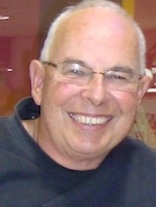

Bruce Holland:
Workplace Wizard
Contact Bruce
| ph |
| +64 21 620 456 |
| Skype |
| bruce.holland |
| 16 Kauri Street, Woburn, Hutt City, Wellington, New Zealand |
| Bruce.Holland @virtual.co.nz |
 |
Energy
Energy is particularly important for those of us who see their organisation as a system.
Systems
A system is a set of components that work together for the overall objective of the whole. Like all systems, organisations can be viewed as follows:

All organisation take inputs (especially capital and human energy) and undertake work that produces outputs. The outputs are exposed to the environment (customers and stakeholders) and this feedback into the system. Most managers are used to thinking about 'inputs', 'throughputs' and 'outputs' but they don't think about what it is that is flowing through the system, or to feedback or memory.
Lets think about what it is that's flowing around the system in the chart above. Clearly there is money and resources and information; but in my experience by far the most important thing is energy - human energy! People are like living magnets, they attract into their lives people and circumstances that are in harmony with their dominant thoughts. The more emotion given out the stronger the energy. Remember that magnets and energy are just different forms of the same stuff and you will see the connection. Now, if you put people together you don't add the energy, you multiply it!!
Recently my friend Professor Colin Campbell-Hunt was talking to Virtual Group about his research1 into great New Zealand companies. He said they were like the Sun, with so much energy, it crackles out in flares around the edges. This image really appealed to me because I know exactly what he means. You can feel it the minute you enter a workplace. The BUZZ. It's exciting, its palpable. It's the difference between success and ordinary.
Human Energy
In organisations human energy is the power that sustains the system. Human energy is a function of spiritual, emotional, mental and physical energy. Releasing human energy is the first priority of all managers. Yet in mechanical models they suck energy out of the system. Human energy can be encouraged, nurtured and lead, but trying to limit it, control it or box it subtracts energy
Energy is highly important but most managers don't see their role as managers of energy. Actually 'managers of energy' is probably the wrong way to think about it. Human energy can not be bought or controlled, it can't be managed. It can only be given, encouraged and set free.
Energy is created by managers who believe in their people, more than the people believe in themselves. Most people are like unlocked treasure chests, all they need is someone with the key. It comes from valuing people above all else, even when the going gets tough. It's about nourishing people: body (more income), head (more learning), heart (more belonging) and soul (more meaning).
Energy comes from constantly discussing the meaning of their work and tying it to a higher purpose. Nearly everybody wants to be part of something that is bigger than themselves. They want to make the world a better place. They want to leave a legacy. Talk in these terms and the sun starts to flare.
Take the Energy Test
Here's my challenge. Take the energy test. As soon as you've finished reading this, give yourself 10 minutes to walk around the organisation and just be aware of the energy levels.
We need far more open organisations than we have traditionally seen. However like most things in life this can be carried too far, the latest physics theory shows of the continued accumulation of information and energy can only occur to the extent that the system is not too open. If the system is too open the systematic memory will dissipate. Energy flow is of no consequence unless the energy is trapped within the system where it circulates to build structures for storing energy and to do the work before it is dissipated. Perhaps it would help to think of the organisation like a river. If the river is too straight and fast the water will empty out of the river very quickly. However if the water has to move around corners, get into eddies and swirl round then the water stays within the river for a far longer period of time. The average residence time of energy is a measure of the organised complexity of the system. The challenge of management therefore is to encourage eddies and swirls within the organisation, where people come together and talk, where they can argue and discuss things. It shouldn't be too easy. People should come with different views and expand on what was already there to start with. This is the way to increase energy and information.
For more new insights


